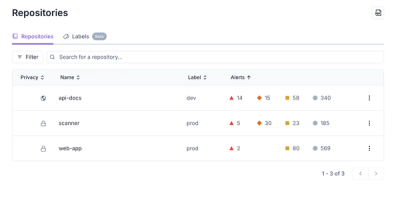
Security News
VulnCon 2025: NVD Scraps Industry Consortium Plan, Raising Questions About Reform
At VulnCon 2025, NIST scrapped its NVD consortium plans, admitted it can't keep up with CVEs, and outlined automation efforts amid a mounting backlog.
props-check
Advanced tools
Check your props and give a helpful error if you've mis-typed.
npm install props-check
const PropsCheck = require('props-check')
PropsCheckPropsCheck checks props against the spec and returns a map with list of possible corrections.
// Example spec
const spec = {
read: 'Function'
, sanitize: '[Function]'
, validate: '[Function]'
, normalize: '[Function]'
};
// Example object
const test = {
raed: () => null
, santize: [ () => null ]
, alvidate: [ () => null ]
, normalize: [ () => null ]
, format: [ () => null ]
};
const result = PropsCheck(spec, test);
result:
{ raed: [ 'read' ]
, santize: [ 'sanitize' ]
, alvidate: [ 'validate' ]
, normalize: []
, format: []
}
PropsCheck returns null if spec and test have the exact same props.
PropsCheck.customPropsCheck.custom takes a custom comparator and returns a function that is similar to PropsCheck.
const comparator = (a, b) => a < b;
const result = PropsCheck.custom(comparator)(spec, test);
PropsCheck.humanPropsCheck.human accepts the same arguments as PropsCheck but returns a more helpful error message.
const result = PropsCheck.human(spec, test);
result:
You gave me this:
{
raed: …,
santize: …,
alvidate: …,
normalize: …
}
I wasn't expecting:
{ raed: …, santize: …, alvidate: … }
You didn't give me:
{ read: …, sanitize: …, validate: … }
Here's how to fix it:
raed <-> read
santize <-> sanitize
alvidate <-> validate
I have no idea what this mean:
{ format: …, }
PropsCheck.customHumanPropsCheck.customHuman takes a custom message map and returns a function that is similar to PropsCheck.human.
const customMessages = {
given: [ "This is what I got:", … ]
, unexpected: [ "Something is not right..", … ]
, missing: [ "I'm looking for this:", … ]
, conclusion: [ "I suggest the following changes:", … ]
, clueless: [ "I have no idea what these are:", … ]
};
const result = PropsCheck.customHuman(customMessages)(spec, test);
Custom messages will be used randomly if more than 1 message is provided in the list. If a property of the customMessages is misspelled or if a list is empty, default messages will be used instead.
PropsCheck.custom and provide your own comparator, make sure that the comparator accepts 2 arguments and returns either 0 on equal, 1 on similar, or -1 on mismatch.PropsCheck(spec)(test);
PropsCheck.custom(comparator)(spec)(test);
PropsCheck.human(spec)(test);
PropsCheck.customHuman(customMessages)(spec)(test);
are the same as:
PropsCheck(spec, test);
PropsCheck.custom(comparator)(spec, test);
PropsCheck.human(spec, test);
PropsCheck.customHuman(customMessages)(spec, test);
FAQs
Check your props and give a helpful error if you've mis-typed.
The npm package props-check receives a total of 0 weekly downloads. As such, props-check popularity was classified as not popular.
We found that props-check demonstrated a not healthy version release cadence and project activity because the last version was released a year ago. It has 1 open source maintainer collaborating on the project.
Did you know?

Socket for GitHub automatically highlights issues in each pull request and monitors the health of all your open source dependencies. Discover the contents of your packages and block harmful activity before you install or update your dependencies.

Security News
At VulnCon 2025, NIST scrapped its NVD consortium plans, admitted it can't keep up with CVEs, and outlined automation efforts amid a mounting backlog.

Product
We redesigned our GitHub PR comments to deliver clear, actionable security insights without adding noise to your workflow.

Product
Our redesigned Repositories page adds alert severity, filtering, and tabs for faster triage and clearer insights across all your projects.